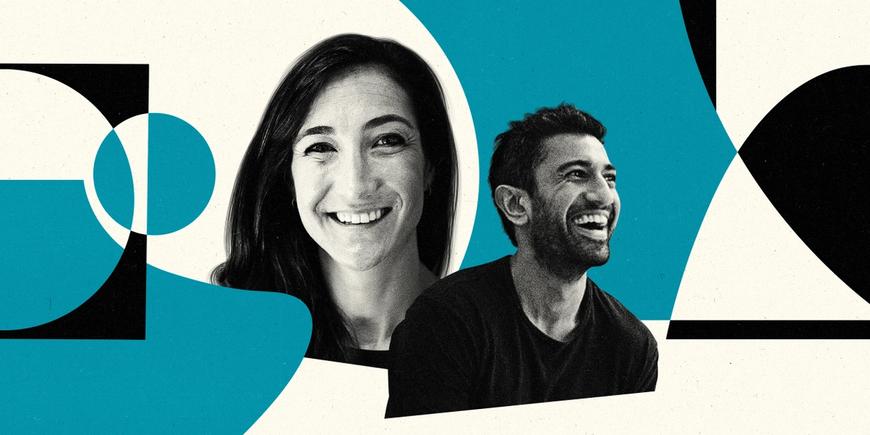How To Build a Recruiting Culture and Hire Top Technical Talent
I sat down with Pratap Ranade, founder and CEO of Arena AI, to talk about interviews, hiring strategy, and building a culture where recruiting is a privilege.

When I first met Pratap Ranade, I was the Chief People Officer at Enigma Technologies and he was the new CTO, an engineer who’d been through Y Combinator with a startup later acquired by Palantir. While other leaders in his position might shrug off hiring as “an HR problem,” Pratap treated our partnership with urgency and energy. He cleared his schedule to make time for interviews and set the tone, from the top, that recruiting was a priority and a shared focus.
The first few months of working together tested us. The company was growing quickly, we were hiring dozens of technical roles, and we struggled to stay on top of the process. Together, we stepped back and rebuilt our approach to create a high-functioning recruiting engine. Now, as CEO and Cofounder at Arena AI, Pratap is actively applying the philosophies we honed together. We sat down to discuss the partnership between people and product, interview and hiring strategy, and creating a recruiting culture.
So, Pratap, back at Enigma, you were running product and engineering and also working as the lead Hiring Manager. Can you talk about your approach?
The first thing that was really important was engaging closely with you, the CEO, and the team. The business side, the product side, and the tech side all needed to be involved so we could think strategically about what we were trying to achieve and who we needed to onboard to reach our goals.
Next was to look at my existing team and ask what’s working well and what’s not. What are the profiles of people who have excelled? As a leader, you have to make those difficult assessments in order to create a high-performing culture.
The big tension we had to grapple with was between hiring for quality and hiring for speed. So how do you make sure you grow quickly but strategically? You ensure the team is invested in the hiring process by creating a culture where recruiting is a privilege.
I love the idea that the recruiting process is a privilege. How have you built that culture at Arena?
We actively select and invite which of our employees act as interviewers, and my Cofounder Engin and I stay deeply involved. Being selected to do interviews is a badge of honor.
We also make it clear that your seat at the interview table is not guaranteed. We’ve had to tell people, “Hey, the signal we’re getting out of your interviews isn’t sufficient. You no longer have the privilege to do these interviews.”
Even my spot at the table isn’t guaranteed. I’ve been explicit with the team that, like anyone else, I can be benched if I’m not doing a good enough job.
What are the signals that you look for in an interview, especially with someone who isn’t skilled at interviewing, that convert to high performance?
That’s like the Holy Grail, right?
The main thing we’re trying to figure out is, what is your authentic reason for choosing to do something? How have you tackled challenges before? Where does the fire come from within you? Where does the fire come from, within you? Why does it burn?
We also think that it is important to look past the on-paper resume to someone’s background and life experiences. Diversity has proven to be a differentiator for Arena – our recruiters and our team actively look for candidates who may not fit your typical mold or who might get overlooked in a traditional recruiting and interviewing process.
At a company like Arena, you have both technical interviews and deep-dive interviews, which can last upwards of an hour. What are you looking for in both?
In technical interviews, we’re assessing if you have the necessary fundamentals. We’re not trying to trick you with brain teasers—there are just certain fundamentals, like linear algebra or multivariable calculus, that you can’t learn on the job. Those requirements differ for every company, and the technical interviews assess your proficiency in those key areas.
But then we also believe in trajectory, and we’re willing to bet on someone early in their career. That’s where the deep-dive comes in. The onus is on the interviewer to build rapport and try to understand the candidate’s intrinsic nature and motivation. It’s a chance to determine if the candidate is a good fit for the company, even if they’re not great at interviewing.
You've founded two companies and been involved in hiring along the way. What are some mistakes you’ve made and lessons you’ve learned?
The first is around hiring for quality over speed. Especially at a startup with new venture funding, your hair is on fire and you’re desperate for engineers. But hiring the wrong people now is hard to fix later—letting people go is incredibly difficult. In the long run, you’re better off hiring the right people than a lot of people.
The second lesson is to think about trajectory over experience, which I credit to Michael Seibel from Y Combinator. He said, “Some of the people we hired right out of school were the ones who solved breakthrough technology problems." Our industry moves so quickly that expertise from five or ten years ago may no longer be valid. Someone new and hungry isn’t conditioned by what used to be impossible.
The third is failing to be thoughtful about the tip of the spear: our recruiters. Quality recruiters are worth their weight in gold and can mean the difference between scaling good culture at the top of the funnel and wasted time.
Can you talk a little more about hiring an expert versus hiring someone new?
We have a philosophy: when you think you need an expert, question that notion from every angle. You usually discover you don’t.
There is so much firepower and potential in the young talent pool. Especially at a startup where you can offer unlimited room to grow, they have a unique opportunity to spread their wings and fly.
At Arena, some of our strongest people are very early in their careers. We've made big bets, but it's working.
So the lessons: quality over speed and challenge the notion you need an expert?
Yeah, and I have one more: look past generic job titles to focus on the roles themselves.
One of the mistakes we made at Arena was saying, “We need a data scientist.” Data science is such a big category that it’s not a sufficient descriptor. There are people who are functionally working in data science roles who don’t fit the specific niche we need.
So ask yourself, what do you actually mean when you say that job title? What do people think when they hear that title? It’s about the outcomes, not the titles.
SPEED ROUND
Do you believe in offline, go-home-and-do-this tests for interviewees?
They’re not a must-have for all roles, but we require it for some.
What about pair coding in person?
We don't do pair programming exercises, but we do live coding interviews.
Favorite interview question?
“Tell me about a time you were wrong about something.”
And what about a question that is commonly used but gives a deeply flawed signal?
“What are your weaknesses?”
Do you hire for experience or intrinsics?
Intrinsics.
Skill or attribute that intrinsically makes someone a great hire?
Grit and motivation.
Favorite New York City spot for a breakfast or lunch meeting?
Irving Farm Coffee Shop. (The original)
Blog or podcast you learn the most from?
It’s funny—I stopped listening to podcasts because I realized I was starting my day by filling my mind with other people’s thoughts. I can recommend one I like though.
Yes, please! What podcast would you suggest?
Mindscape by Sean Carroll.
Favorite book you've read in the past year?
Project Hail Mary.
Go-to stress release activity?
CrossFit.
And your favorite way to spend the weekend?
I love to cook Sunday night dinners.
